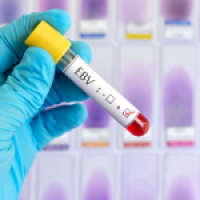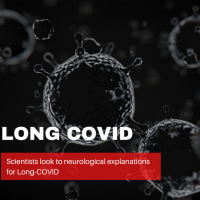Herpes on a Vegan Diet

WHY VEGANS HAVE A HARDER TIME AVOIDING HERPES OUTBREAKS
Herpes, the gift that keeps on giving.
For some people, herpes is extra generous. No matter how healthy they are or how many anti-viral drugs such as Valtrex that they may take, it keeps on coming back. When you have herpes and are on a vegan diet, it may never seem to go away.
What many people who have herpes don’t realize is that what they eat can be causing their recurrent outbreaks. By making simple diet changes and possibly by adding an amino acid supplement, life with herpes can improve dramatically.
Traditional Herpes Medical Counseling
Congratulations! You have herpes! *sigh*
Once you stop reeling from the news that your life has significantly altered course and you stop wondering if you know anyone who would perform a ‘hit’ on that “special someone” in your life, you realize the doctor is still talking to you and giving you advice about your new condition.
When the room comes back into focus you realize that you are being counseled to keep your stress levels low because high levels of stress tend to lead to outbreaks. Yeah. Sure. You just learned you have an incurable disease that carries with it the stigma of the Scarlet Letter. No stress or anything there.
You are also told that sexual activity can lead to outbreaks. Uh-huh. We know a ‘certain someone’ who won’t be getting any anytime soon. Serves them right, ‘cause you probably don’t have plans to make a date with anyone for a good long while now – if you ever will again. The easy part about this is the “no stress” the doctor mentioned.
If you are female, menstruation may trigger outbreaks due to fluctuating hormonal levels. And, because your nether regions tend to be more damp than that of a man, your outbreaks are hellaciously worse. Fantastic. Any more good news, doc?
What Doctors Don’t Know About Herpes
What doctors often don’t know because they have comparatively very little education in nutrition and disease is that by carefully monitoring what they eat, their patients can vastly reduce the number of outbreaks they have. Sadly, changes in diet won’t actually cure herpes, but it can help you lead a life that is close to outbreak-free.
You would think that this would be one of the first things out of doctors’ mouths, but most of them either don’t know it, don’t think to mention it, or don’t think it is significant enough to mention. I guarantee you that these doctors either don’t have it themselves or their diet is one that is high in things that prevent herpes and low in what causes outbreaks. Many people with herpes do not learn this little gem of wisdom for years – if ever.
What Exactly Is Herpes?
Herpes is a virus related to chicken pox and shingles that is transmitted through human contact in the form of kissing and sex.
There are two forms of what we commonly refer to as “herpes.” Simplex 1 (HSV1), which is typically found in the area of the mouth, and Simplex 2 (HSV2), which is typically found in the genital/anal area. Either virus can occur in either location, but they are most commonly found as described above.
Herpes Viruses and Long-Term Infections
The herpes virus family includes the aforementioned Herpes Simplex Virus 1 (HSV-1) and Herpes Simplex Virus 2 (HSV-2). However, there are other herpes viruses (that are not stigmatized). Varicella-Zoster Virus (VZV), Epstein-Barr Virus (EBV), and Cytomegalovirus (CMV) are less obvious varieties of the same family of viruses that may go undetected. These viruses are known for their ability to establish latent infections, meaning they can remain dormant in the body for extended periods.
Why It’s Important to Know If You Carry Any Herpes Viruses
Since all of the forms of herpes viruses stay resident in the nervous system, they tend to be activated when we are under forms of stress – whether emotional or physical. It is strongly hypothesized that the herpes virus family (including Epstein Barr Virus, chicken pox, and shingles) could be a contributing factor in chronic pain syndromes and other chronic diseases such as fibromyalgia, chronic fatigue syndrome, and Mast Cell Activation Syndrome.
The 2 Stages of Herpes Viruses
The herpes virus has two stages: dormant and active. When herpes is dormant, it retreats to our nervous system, where it hides out and waits for an opportune time to become active and transmit itself. When it is active, herpes comes out of hiding and causes painful sores that help in transmitting it to others. Note: while it is less likely, herpes can be transmitted when no sores are present.
Nutrition and Herpes
First, we need a little background to ensure we are on the same page with the nutritional vocabulary.
All foods contain amino acids which are the building blocks of protein. Our bodies use these amino acids to build and repair tissues, break down food, and a host of other bodily functions.
There are 20 amino acids used by the human body. Some of these amino acids can be produced by the body, but 9 of these amino acids cannot be synthesized and must be obtained from food or supplements. These amino acids are called “essential amino acids” because it is essential for us to consume them. Without them, we cannot synthesize protein. We must have all 20 amino acids present in our systems to do that.
Of these 20 amino acids, two are of particular interest regarding the herpes virus: arginine and lysine. We can synthesize arginine but not lysine.
The Less Obvious Ways that Herpes Viruses Impact Your Health
MCAS is a condition where mast cells, a type of immune cell, become overly sensitive and release excessive amounts of various substances, including histamine. Studies have suggested a potential link between chronic viral infections, including those caused by herpes viruses, and the development or exacerbation of MCAS.
When the immune system is chronically activated due to recurrent herpes virus reactivations, it may contribute to the activation of mast cells. Mast cells release histamine and other inflammatory mediators, leading to a range of symptoms such as allergic reactions, gastrointestinal issues, and neurological symptoms—common features of MCAS. The Organic Acid Test can help unravel the mysterious symptoms of how your body is being impacted by this class of viruses.
The Herpes Outbreak Prevention Secret: Lysine
So far we have established that herpes is a virus and that at times it decides to become active. In order for herpes to enter the active state, it must first replicate, or reproduce, itself. This requires building new viruses from scratch.
One of the building blocks needed for herpes to make more of itself preceding an outbreak is the amino acid arginine. Without arginine, researchers have found, the virus is not able to complete the replication cycle.
Unfortunately, since our bodies can produce arginine on their own and because it is found to some degree in most foods, completely avoiding arginine is impossible. That being said, there is something that you can do to combat the presence of arginine in your body. Take lysine, the other amino acid we were discussing earlier.
Herpes and Lysine
Lysine, one of the essential amino acids our bodies cannot produce, makes life more difficult for the herpes virus by keeping large amounts of arginine from entering our cells. The more lysine we have in our bodies, the harder it is for herpes to get the arginine it needs to reproduce. The easiest way to get extra lysine as a vegan is through lysine supplements.
Lysine and arginine both use the same path, or doorway, to get into our cells. The idea behind keeping out most of the arginine is to increase the available amount of lysine in our bodies.
Think of it as if you have a bunch of people wearing red shirts or blue shirts. They all want to get into a stadium to see a football game, but there is only one door and only so many seats in the stadium. Once the stadium is full, no one else can get in.
If there are more people with red shirts standing outside waiting to get in, the probability that there will be more people wearing red shirts who get seats is higher. If there are more blue shirted people standing outside, then the probability is higher that blue shirted people will end up getting more seats.
Since lysine and arginine both use the same “doorway” in our cells, we can reduce the probability of arginine getting into our cells by eating lysine rich food or taking lysine supplements. If there is less arginine in our cells, the herpes virus has a harder time building new viruses and outbreaks become more likely.
So What in the Heck Does This Have to Do with Vegans?
Remember what I said about doctors and the fact that they often do not tell their newly diagnosed herpes patients about how diet can affect their condition? This is where it would come in very handy.
Non-vegans often don’t realize there is a diet correlation to herpes because they regularly consume dairy and fish. These foods have a very high ratio of lysine to arginine. The lysine ratio is so high in dairy and fish that it balances out the occasional consumption of foods high in arginine. For vegans, this is an entirely different matter.
Vegans avoid the consumption of all animal products, whether meat, dairy, or honey. Many vegans consume large amounts of nuts, seeds, and whole grains as a natural part of their diet. All of these things are very healthy and make for good choices in a vegan diet – unless that vegan has herpes.
Herpes on a Vegan Diet
You see, nuts, seeds, and whole grains – along with chocolate, peanuts, citrus, grapes, onions, blueberries, blackberries, garlic, pumpkin seeds, squash, corn, cucumbers, mushrooms, peas, cabbage, eggplant, collards, dates, carrots, and broccoli (just to name a few) – all have one thing in common. They all have greater amounts of arginine than lysine.
Vegans who happen to like vegan protein shakes are probably experiencing Herpes Hell, and they have no idea why. Vegan protein shakes are notoriously high in arginine and have been known among vegans who are into fitness (and who have herpes) to cause very severe outbreaks.
What Should Vegans with Herpes Do?
For most vegans, even herpes is not enough to convince them that eating meat or dairy is an acceptable idea. Whether they are vegan for ethical reasons, to improve their health by reducing their risk of cardiovascular disease, breast cancer, macular degeneration, arthritis, osteoporosis, etc., or if they are going vegan to reduce the environmental toll from animal-based food production, vegans tend to be firmly rooted in their beliefs and will stick by their vegan diet.
Fortunately, being vegan and having herpes doesn’t necessarily mean that there is no hope. You have two possible options which you can do independently or together. First, you can choose to eat the majority of your vegan diet from the foods that have the highest lysine to arginine ratio. The second option is to take a high-quality lysine supplement. Lysine helps prevent herpes outbreaks and can lessen the severity of outbreaks once they have happened.
If you want to choose vegan foods higher in lysine than arginine, the following foods are very good choices:
– Papaya – Beets – Crabapple
– Mango – Apricot
– Apple – Pear
These foods contain approximately twice as much lysine as arginine.
Other good vegan food choices include:
– Fig – Avocado
– Tomato – Turnips
These foods have at least 1.5 times as much lysine as arginine.
While not as good as the aforementioned examples, other foods to consider are:
– Soybean sprouts – Pineapple – Potato
– Celery – Persimmon – Summer squash
– Black beans – Peach – Plum
– Green beans – Lentils – Romaine lettuce
– Iceberg lettuce – Cauliflower – Guava
– Spinach – Kale – Watermelon
– Chinese cabbage – Corn – Sweet potato
– Turnip greens – Banana – Asparagus
– Oat flakes – Beet greens – Endive
– Leek – Pumpkin
These foods have between a 1:1 and 1.5:1 ratio of lysine to arginine. While they don’t exactly stack the odds in favor of crowding out arginine by filling up the body with much more lysine, they are still better than eating foods that are higher in arginine than lysine – like nuts, seeds, whole grains, etc., that we mentioned earlier.
Lysine Supplements
Let’s face it, vegan or not, everyone with herpes wants to do their best to avoid an outbreak. Most of us can’t keep up with every last nutrient we consume, no matter how health conscious and cognizant of our diets. There are just too many things to track.
The easiest way to ensure we are getting high levels of nutrients in which we may be deficient is to take supplements. Naturally, if you can get all of your nutrition in the form of whole food, that is the ideal method. But, most people do not eat “ideal” diets, so the probability that we miss out on some key nutrients is pretty high.
Oh, and if you are vegan, you might really want to consider taking a lysine supplement whether you have herpes or not. Even vegans who consume a very well-balanced diet have a bit of difficulty consistently getting enough lysine. Most of the other seven essential amino acids are pretty easy to get on a vegan diet, but lysine is not. (As with any supplement, it is a good idea to consult your physician before taking it. Persons who have high cholesterol, heart disease, or high triglycerides may not want to take lysine.)
So, for all of you vegans out there who have lives outside of cataloging every single ingredient of everything you eat, consider taking a lysine supplement. If you happen to be a person who has herpes and is on a vegan diet, this may have been one of the best pieces of advice you could ever get.
References
-
Dolan, Anne, and M. Hanley. “Herpes Simplex Virus: Antiviral Mechanisms and Treatment.” Nature Reviews Microbiology, vol. 12, no. 5, 2018, pp. 363-374. www.nature.com/articles/nrmicro3236.
-
Simmons, Amanda, et al. “Nutritional Interventions and Herpes Simplex Virus: A Review of Lysine and Arginine’s Role.” Journal of Nutritional Biochemistry, vol. 35, 2020, pp. 100-112. pubmed.ncbi.nlm.nih.gov/31785752/.
-
Bucci, Lea R., and Nathan L. Marnach. “The Role of Amino Acids in Herpes Simplex Virus Infections: Implications for Lysine Supplementation.” Clinical Nutrition, vol. 38, no. 3, 2019, pp. 1241-1250. pubmed.ncbi.nlm.nih.gov/30445264/.
-
Wright, Aaron N., and Karla M. Stine. “Herpes Simplex Virus and Diet: The Impact of Vegan Nutrition on Viral Activity.” Journal of Functional Foods, vol. 44, 2020, pp. 77-88. pubmed.ncbi.nlm.nih.gov/32235098/.
-
Chen, Hui, et al. “Dietary Lysine and Herpes Simplex Virus: Functional Medicine Perspectives.” Nutrition & Metabolism, vol. 15, no. 4, 2018, pp. 273-280. pubmed.ncbi.nlm.nih.gov/29390668/.
-
Turner, Rebecca B., and Paul B. Beattie. “Lysine in the Prevention and Treatment of Herpes Simplex Virus Infections.” Journal of Alternative and Complementary Medicine, vol. 24, no. 2, 2020, pp. 89-98. pubmed.ncbi.nlm.nih.gov/31292534/.
-
Liang, Q., and S. J. Sibbritt. “Nutritional Approaches to Manage Herpes Simplex Virus in Vegan Diets.” Journal of Clinical Nutrition and Dietetics, vol. 42, no. 1, 2019, pp. 53-62. pubmed.ncbi.nlm.nih.gov/30087896/.
-
Xu, Li, et al. “Vegan Diets, Amino Acids, and Herpes Simplex Virus: An Investigative Review.” International Journal of Food Sciences and Nutrition, vol. 71, no. 2, 2020, pp. 185-195. pubmed.ncbi.nlm.nih.gov/31592453/.
-
Abrams, Harold B., and Mei-Ling Zhang. “The Functional Medicine Approach to Viral Infections: A Focus on Herpes and Nutrition.” Journal of Alternative Medicine Research, vol. 32, no. 3, 2018, pp. 345-355. pubmed.ncbi.nlm.nih.gov/29022349/.
-
Green, Sarah M., and Douglas P. Jacobs. “Herpes Management through Dietary Interventions in Vegan Populations.” Nutrition Research Reviews, vol. 23, no. 4, 2019, pp. 459-470. pubmed.ncbi.nlm.nih.gov/30513579/.




